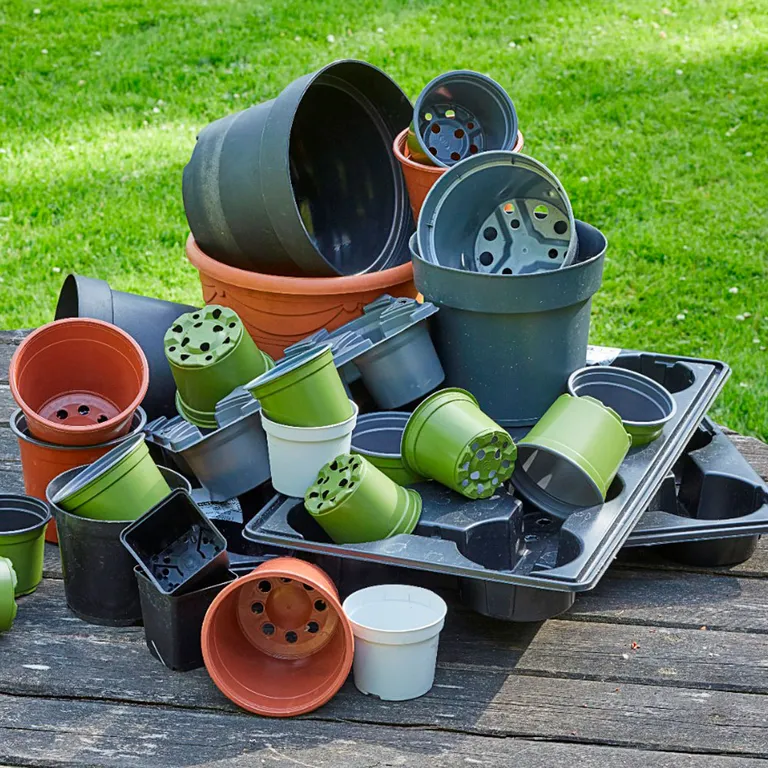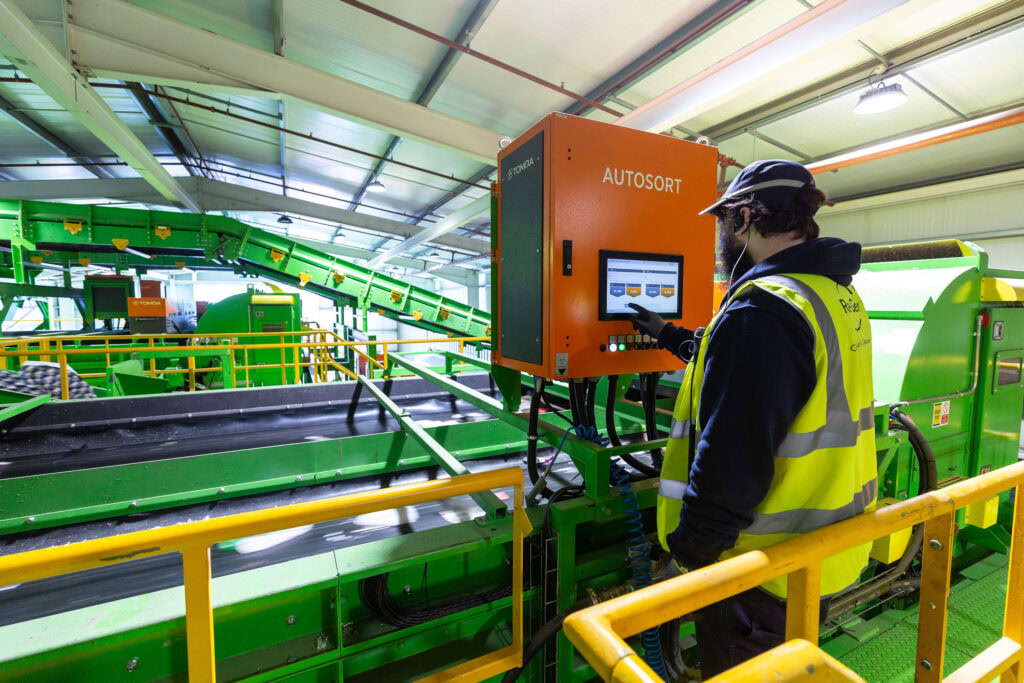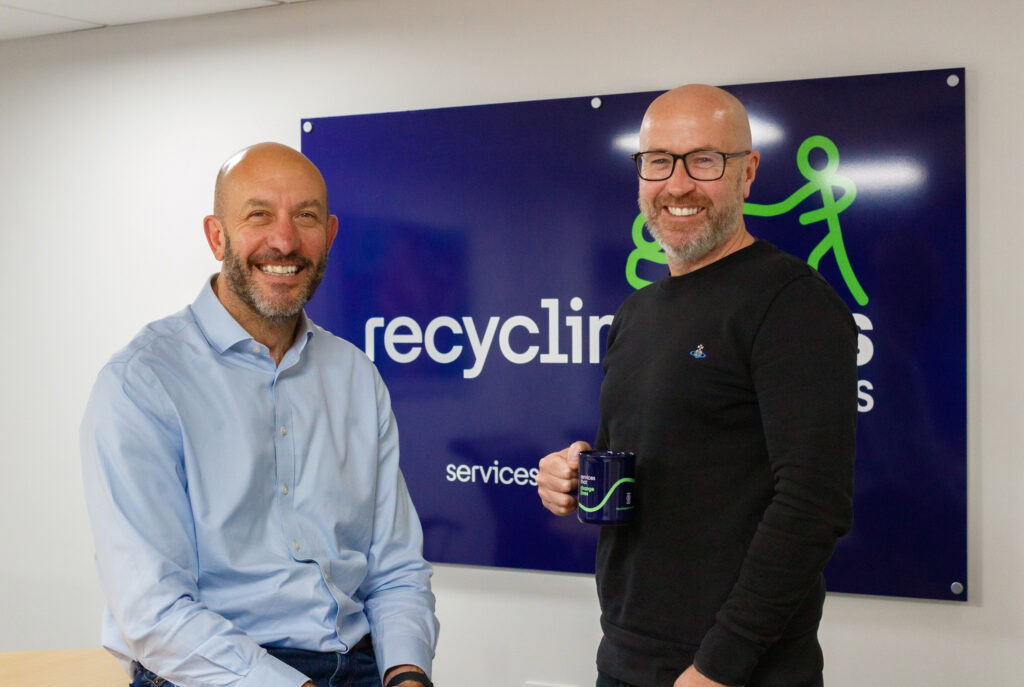Plastic plant pots come in a variety of sizes, an abundance of bright colours and are usually made from mono polypropylene (PP). This is a primary polymer and one of the most used types of plastic for all types of packaging formats, including food, consumer goods and automotive, construction. It also has recognised end-markets and can be recycled back into new products.
So, why are plant pots not being collected, sorted, and recycled given they are made from such a valuable material?
Most local authorities do not actively collect plastic plant pots as part of kerbside recycling collections for the following reasons:
- Concern that the consumer does not always empty the soil and plant from the pot before disposing of it, causing contamination to the other materials (both plastic and others) in the recycling stream.
- The pots and trays can be made of materials that are not commonly sorted and mechanically recycled, like PS.
- The PP plant pots that are black contain a carbon pigment that when presented to the infra-red optical eye at sorting facilities cannot be detected as it absorbs the light. So, the pot ends up being rejected.
History
Approximately five years ago, plastic plant pots and bedding trays were commonly black with some being made from PP, and some from polystyrene (PS). Since then, consumer awareness of sustainability has increased, and media coverage promoted black plastic as “bad”.
The first step for Recoup, the HTA and plant pot manufacturers was to rethink the design, and most importantly the colour.
A number of newly manufactured, coloured plant pots were tested by Recoup at various UK Material Recovery Facilities (MRF) and controlled tested at an independent laboratory in Europe. The tests took place over the course of two years and manufacturers worked to produce colours that contained minimal or no carbon pigment, using colours that were easily identified during the optical sorting process.
Recoup CEO Stuart Foster stated, “This is a valuable fraction of plastics and I see no reason why it shouldn’t be included in household recyclables collections subject to meeting usual good practice collection requirements, namely being clean and empty.”
It was found that many of the coloured PP plant pots can be crushed and successfully moved through the sorting process, being correctly identified as PP and being sent for further processing. Recoup also investigated the next step of the recycling of PP plant pots and sought guidance from a PP re-processor.
It was widely communicated that mono PP plant pots are a valuable material and can be easily processed into pellets that go on to make new products.
At this point, after successful testing the findings were presented to local authority representatives to discuss the reasons why plastic plant pots are not widely collected as part of kerbside recycling across the country.
The counterargument largely remained the same, with the concern that the plant pots will be discarded containing contaminants, and it would encourage households to clear out their sheds and outbuildings of old stored plant pots resulting in all kinds of unwanted materials.
Issues
The data from Recoup’s 2023 UK Household Plastic Packaging Collection Survey reported that only 30 of the 379 local authorities across the UK target plastic plant pots as part of their kerbside recycling collections. That is less than 10%. By comparison, 88% accept plastic pots, tubs and trays.
So, why do these 30 collect them and what do they do differently to avoid the issues and concerns raised by other local authorities and waste management companies?
To investigate further, Recoup conducted case studies with several of the local authorities that actively collect plastic plant pots as part of their kerbside recycling collections. These local authorities actively communicate to their residents that plastic plant pots can be included providing they are empty and are not black in colour. They confirm that the PP plant pots are sorted into the mixed plastic bales and sent on for further processing.
Recoup has presented the following points:
- The plastic plant pot is a type of packaging, and like all other packaging, the consumer is asked to empty and clean before they place packaging into their recycling bin.
- In recent years, black plastic packaging for food has become almost extinct and is rarely seen in supermarkets. This is also true for plastic plant pots. Black plastic is often avoided in recycling collections, and this is actively communicated to residents in what can and cannot go into recycling, Recoup argues that this would and could be the same for black plastic plant pots.
- Like other industries, the horticulture sector has worked together to reduce the use of black plastic and carbon pigments, with lack of recognition unlike the large retailers who replaced black plastic for food packaging.
- There have been some concerns about the potential size of plant pots with larger three-litre pots, or bigger, being placed into recycling bins causing issues for the MRF’s flow of material. Recoup said this comes down to common sense and the communication would remain the same to residents: “no large or bulky items.”
- Most keen gardeners are conscientious about the environment and sustainability and are willing to do the right thing when it comes to recycling.
Challenges
Recoup said that it is “evident” that the industry continues to follow guidelines when it comes to design for recyclability, and they have taken responsibility as an industry to use carbon black-free pigments. Now, it has said the industry need to openly communicate their challenges and frustrations regarding plant pot collections with local authorities and reach agreement with waste management companies.
The average UK household is said to spend around £150 per year on their gardens and the garden industry made an estimated £28 billion contribution to national GDP in 2019.
Read the full report here.










Subscribe for free